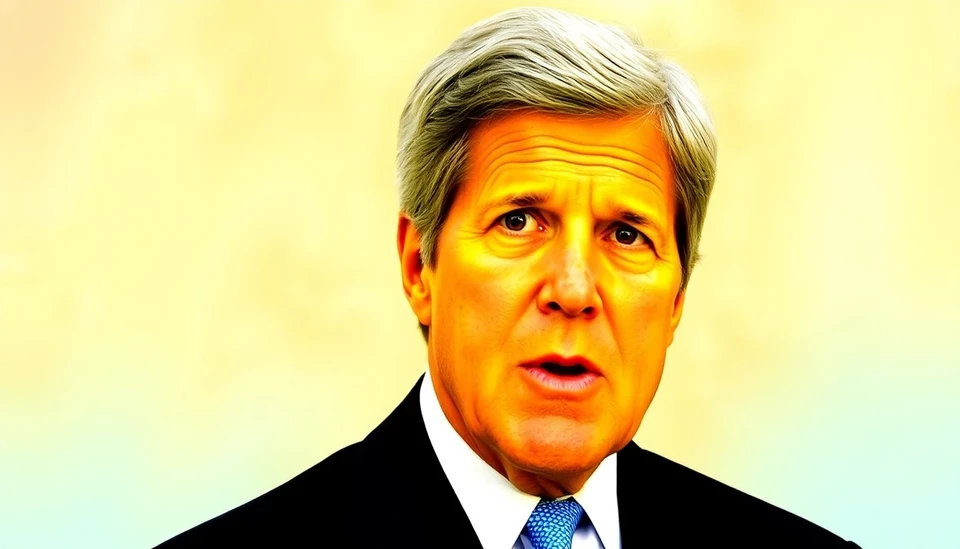
John Kerry, the U.S. special presidential envoy for climate, has issued a grave warning regarding the trajectory of global warming, stating that the world is on a path to exceed the critical 1.5°C temperature increase limit established in the Paris Agreement. Speaking at the COP28 climate conference in Dubai, Kerry expressed concern that the goal of limiting global temperature increases to this threshold is increasingly slipping out of reach due to inadequate action and planning.
Kerry’s statement comes amidst ongoing negotiations at the conference, where countries are striving to tackle climate change through reduced greenhouse gas emissions and a transition to sustainable energy sources. With evidence mounting of catastrophic climate-related disasters occurring around the globe, his remarks underscore a heightened sense of urgency for immediate, coordinated action from all nations.
The Paris Agreement, ratified in 2016, aims to cap global warming at 1.5°C above pre-industrial levels to avoid the most disastrous effects of climate change. However, multiple reports and data indicate that unless significant and immediate changes are made, the global average temperature is set to rise by more than 1.5°C by as early as 2030. The UN recently reported that the world is on track for a temperature increase of approximately 2.5°C by the end of the century if current policies remain unchanged.
Kerry pointed to several contributing factors to this alarming trend, including a lack of stringent policies across many nations and the continued reliance on fossil fuels, which remain a major source of carbon emissions. He emphasized that the shift towards renewable energy, while progressing in some areas, has not yet achieved the scale required to meet climate targets. "We need to accelerate our efforts, raise our ambitions, and work together across the globe to cut emissions," he urged.
The impending climate crisis, Kerry noted, will not only have environmental consequences but will also exacerbate economic and social inequalities. Vulnerable communities, particularly in developing countries, are facing the brunt of climate-related impacts, including extreme weather, rising sea levels, and food insecurity. Kerry called for not only environmental but also social reforms to ensure a just transition to a low-carbon future, highlighting the interconnected nature of climate action and global equity.
Looking ahead, Kerry expressed cautious optimism, citing recent commitments from various nations to cut emissions and invest in green technologies. However, he stressed that these actions must be scaled up and implemented rapidly to avoid crossing the 1.5°C threshold. "This is a defining moment in our fight against climate change. The window of opportunity is closing, and we cannot afford complacency," he stated.
As COP28 progresses, leaders, scientists, and activists are calling for a more robust international framework that holds nations accountable for their climate commitments. The conference is viewed as a pivotal opportunity to galvanize global action to avert the most severe impacts of climate change.
Kerry's stark warning serves as a wake-up call, urging individuals and nations alike to take immediate steps toward sustainability and climate resilience. The urgency of the message is clear: unless collective action is fortified, the global community will face dire consequences that will reverberate for generations to come.
In conclusion, the fight against climate change is not just a political issue, but a moral imperative that demands immediate attention and action from everyone, across all corners of the globe.
#ClimateChange #GlobalWarming #COP28 #Sustainability #ClimateAction #ParisAgreement #GreenEnergy #1point5Degrees
Author: Sophie Bennett




